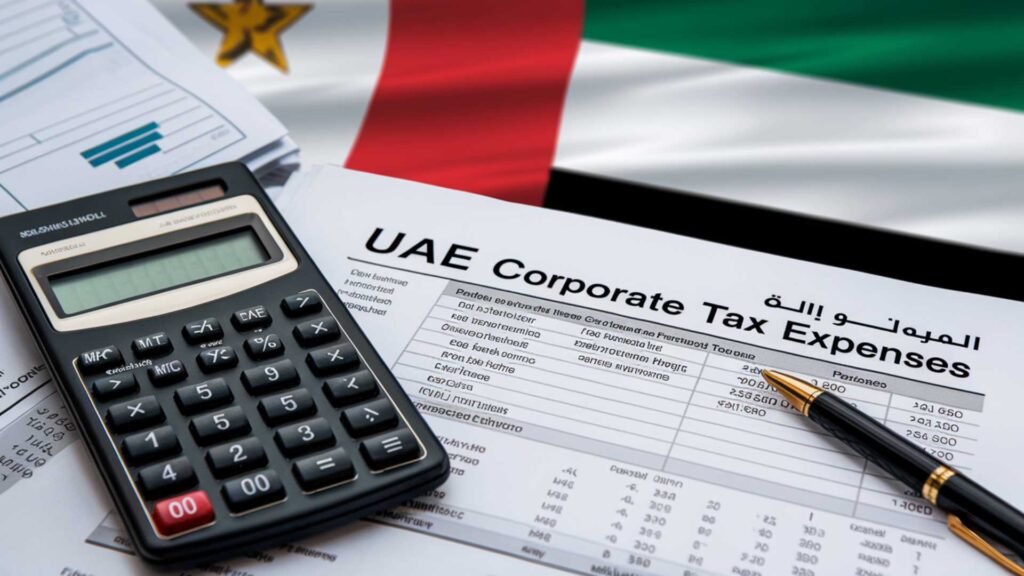As the United Arab Emirates continues to strengthen its fiscal framework, the introduction of corporate tax marks a major shift in the nation’s financial landscape.
For Abu Dhabi-based businesses, understanding how this regulation applies is essential for effective planning and compliance. This corporate tax FAQ Abu Dhabi guide answers the most common questions companies face when navigating the new tax system.
What Is Corporate Tax in Abu Dhabi?
Corporate Tax in Abu Dhabi refers to the federal tax levied on the taxable income of businesses and individuals derived from business activities in the UAE. Enacted under Federal Decree-Law No. 47 of 2022 on the Taxation of Corporations and Businesses, this tax applies uniformly across all emirates.
Therefore, businesses in Abu Dhabi are subject to the same federal tax regulations as those in other parts of the UAE. The law establishes a comprehensive framework designed to ensure transparency, fairness, and adherence to global best practices in taxation.
What Is the Corporate Tax Rate in Abu Dhabi?
The standard corporate tax rate in Abu Dhabi is 9% on taxable income exceeding AED 375,000, while income below this threshold is tax-free (0%).
This progressive structure ensures support for small and medium enterprises (SMEs), encouraging growth and entrepreneurship. However, certain large multinational corporations may face different obligations under the OECD’s Pillar Two framework, which introduces a global minimum tax rate of 15% for qualifying entities.
Who Is Required to Pay Corporate Tax in Abu Dhabi?
Corporate tax in Abu Dhabi applies to:
- Businesses incorporated, managed, or controlled within Abu Dhabi.
- Foreign entities that operate through a permanent establishment in the emirate.
Free zone entities, depending on their income classification. Qualifying free zone entities can benefit from a 0 percent tax rate on qualifying income, provided they meet economic substance, transfer pricing, and other specific conditions.
How to Register for Corporate Tax in Abu Dhabi?
Registering for corporate tax FAQ Abu Dhabi is a crucial step for compliance. Businesses must register with the Federal Tax Authority (FTA) via their online portal. The process generally involves:
1. Accessing the FTA Website: Navigate to the official FTA portal.
2. Creating an Account (if new): Businesses without an existing FTA account will need to create one.
3. Initiating Corporate Tax Registration: Select the corporate tax registration option.
4. Providing Required Information: This typically includes business details, trade license information, and financial data.
5. Uploading Documents: Common documents include trade licenses, articles of association, shareholder details, and authorized signatory information.
Businesses should be aware of registration deadlines to avoid penalties for late registration. These deadlines are generally communicated by the FTA, and it’s advisable to complete the process well in advance.
How to File and Pay Corporate Tax in Abu Dhabi
Once registered, businesses must comply with annual filing and payment requirements:
- The tax period generally aligns with the company’s financial year.
- Filing is conducted online through the FTA portal, where companies must submit an accurate tax return and supporting financial data.
- Payment is made electronically via approved FTA channels.
Maintaining precise bookkeeping and transparent records is vital for audit purposes and smooth compliance. Businesses are encouraged to use professional accounting systems to prevent errors and ensure accurate filings.
What Are the Penalties for Non-Compliance?
Non-compliance with corporate tax regulations can result in financial penalties. Typical violations include:
- Late registration or filing.
- Incorrect tax return submissions.
- Failure to maintain proper financial records or provide required information.
Penalties are designed to encourage compliance. Businesses can avoid them by staying updated on deadlines, understanding FTA requirements, and seeking professional guidance.
A Corporate Tax Consultant in Abu Dhabi plays an essential role in guiding businesses through every stage of tax compliance. Consultants assist with:
- Registration and documentation with the FTA.
- Tax return preparation and filing.
- Reviewing financial records to ensure accuracy.
- Advising on tax-efficient strategies to reduce liabilities.
Their expertise helps companies avoid penalties, maximize exemptions, and remain compliant with the UAE’s evolving tax landscape.
Final Thoughts on Corporate Tax in Abu Dhabi
The introduction of Abu Dhabi corporate tax marks a significant milestone in the UAE’s economic landscape. For businesses in Abu Dhabi, a comprehensive understanding of these new tax laws is not just beneficial, but essential for sustained success.
Compliance not only safeguards against penalties but also enhances corporate transparency and investor confidence. By staying informed and consulting with professionals, businesses can navigate the Abu Dhabi corporate tax framework confidently and effectively.
For tailored advice and compliance support, reach out to an experienced Corporate Tax Consultant in Abu Dhabi to ensure your business remains both compliant and competitive.


